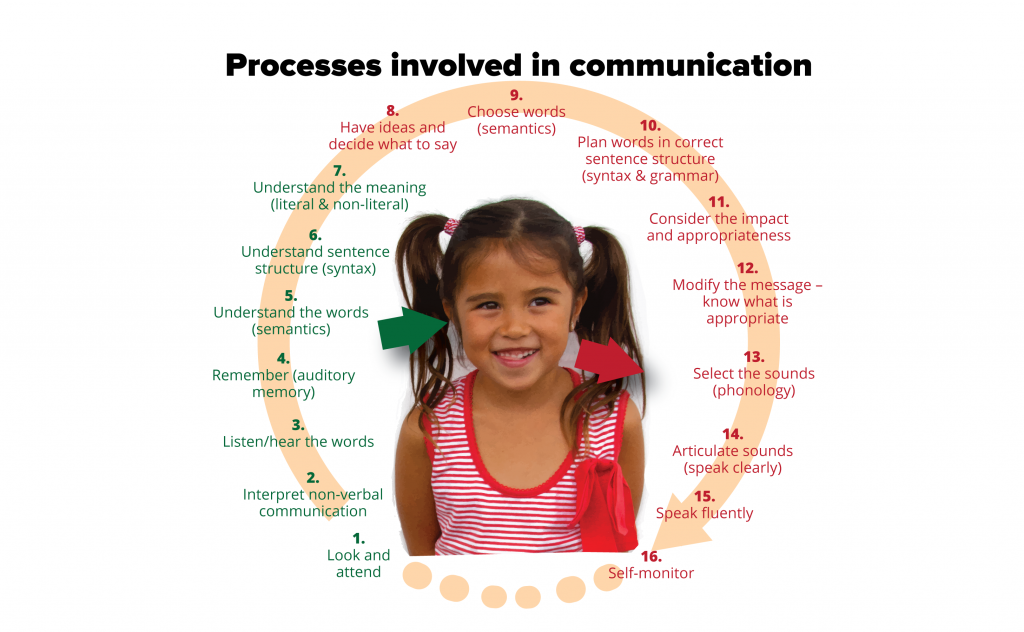not a member yet?
Sign up to our newsletter and receive a free sample resource every month.
Communication, specifically oral language, provides the foundation for the development of literacy skills and is considered a strong indicator of later reading, writing, and overall success. This includes building the language for self-identity, and the language of socialisation and daily life including social interaction with other learners and adults. Language and communication are at the heart of learning and are too important to be left to chance.
The foci of Sound Beginnings is that knowledge about words underpins all education and learning because word knowledge strengthens thinking, speaking, listening, reading, and writing. To be effective communicators we need to be able to use speech and language to express ourselves and know how to listen actively.

Processes involved in communication form a chain involving three phases:
Recognising phase where receptive language skills are used to recognise, process, and understand what someone is saying to us.
Processing phase where we formulate our response.
Output phase where we communicate our response using our expressive language skills.
If there is a breakdown in any of the processes this affects the person’s ability to hear, understand and respond to what is being said. A child who has difficulty in one or more of the processes may experience speech, language, or communication challenges. For many of these children their speech, language and communication needs remain undetected in the classroom. Sound Beginnings provides targeted support incorporating useful strategies that help teachers to build oral language, vocabulary, listening, memory, speech, and literacy skills, as part of their daily teaching practices in all curriculum areas.
Sound Beginnings Professional Learning and Development facilitators are Elklan licensed, highly experienced educators who have provided professional learning and communication support courses for educators and parents across the world.
Sign up to our newsletter and receive a free sample resource every month.